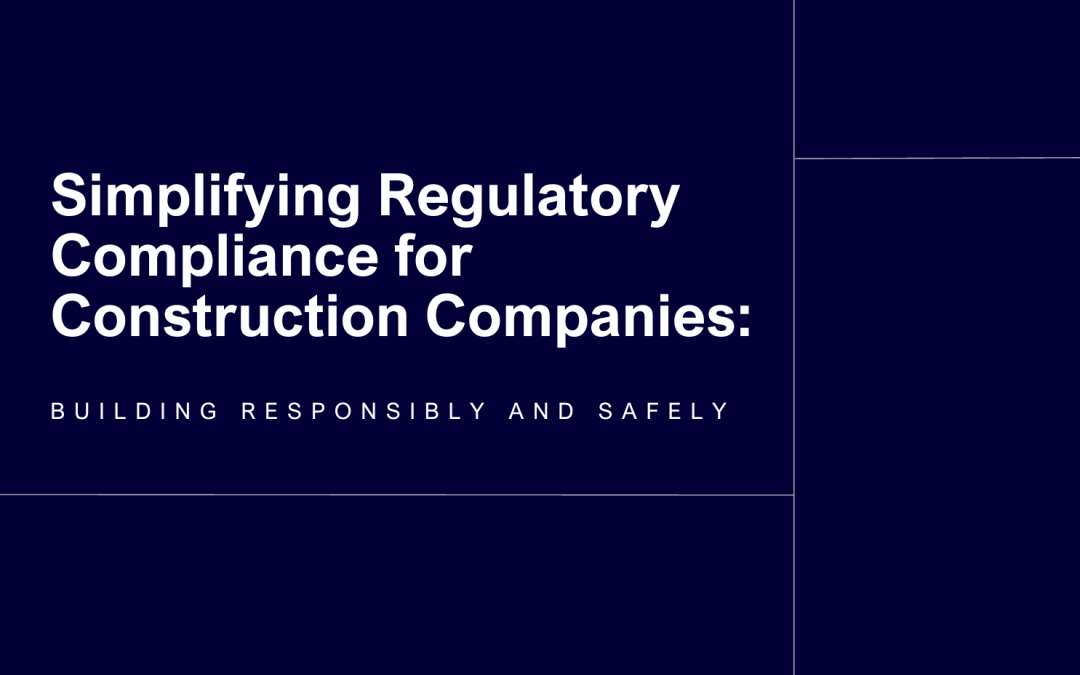Behind the scenes, construction companies face a huge number of regulations and compliance requirements to ensure the safety of their workers and the public, as well as to safeguard the environment. In this article, we’ll explore the world of regulatory compliance for construction companies, shedding light on its importance and offering practical insights to navigate this essential aspect of the industry.
Understanding Regulatory Compliance:
Regulatory compliance refers to adhering to laws, rules, and regulations set by local, county, and larger incorporated Government bodies that span the country. For construction companies, it encompasses a wide range of regulations that are designed to ensure safety, protect the environment, and uphold ethical business practices. From obtaining licences to compliance with workplace safety standards, it is an ongoing effort that construction companies must prioritise.
Importance of Regulatory Compliance in Construction:
Regulatory compliance is not just a legal obligation; it is a fundamental aspect of responsible construction practices. By complying with regulations, construction companies show their commitment to the well-being of their workers, the community, and the environment. Compliance ensures that construction sites are safe, minimises the risk of accidents, and protects workers from hazards. The Health and Safety Executive expects minimum standards but prefers ‘best practice’. This has a knock on effect as to attendances on site, investigations into the company and of course, complaints referred to them from employees, contractors and members of the public.
Navigating Regulatory Compliance:
Keeping up with the ever-evolving landscape of regulations can be challenging for construction companies. Here are a few tips to navigate regulatory compliance effectively:
- Stay Informed: Regularly monitor updates from regulatory authorities and industry associations to stay informed about any new or revised regulations.
- Training and Education: Provide comprehensive training to employees to ensure they understand and adhere to compliance requirements. There is always an importance that employees are directors are aware of their liabilities, especially if there is an emergency on site which involves police or the HSE. Knowing how to handle these situations is imperative.
- Documentation and Record-Keeping: Maintain accurate records of manuals, method statements, risk assessments, inspections, and employee training with a minimum review annually that is documented. Organised documentation not only demonstrates compliance but also simplifies audits and inspections.
- Partnering with Experts: Engage the services of professionals who specialise in regulatory compliance, such as legal advisors or consultants, to navigate complex regulations and ensure your company is always acting in line with the regulations.
Regulatory compliance is a vital aspect of the construction industry. It not only protects workers and the environment but also preserves the integrity and reputation of construction companies. By understanding the importance of compliance and implementing effective strategies to navigate the regulatory landscape, construction companies can build responsibly and safely.
If you’d like support in ensuring your business stays on the right side of regulatory compliance, Nicholls and Nicholls provides expert legal advice and guidance in relation to maintaining this in the construction industry at fixed fee rates. Chat to our friendly team today to find out how we can help on 0207 842 1995 or via email info@nicholls-nicholls.com.

